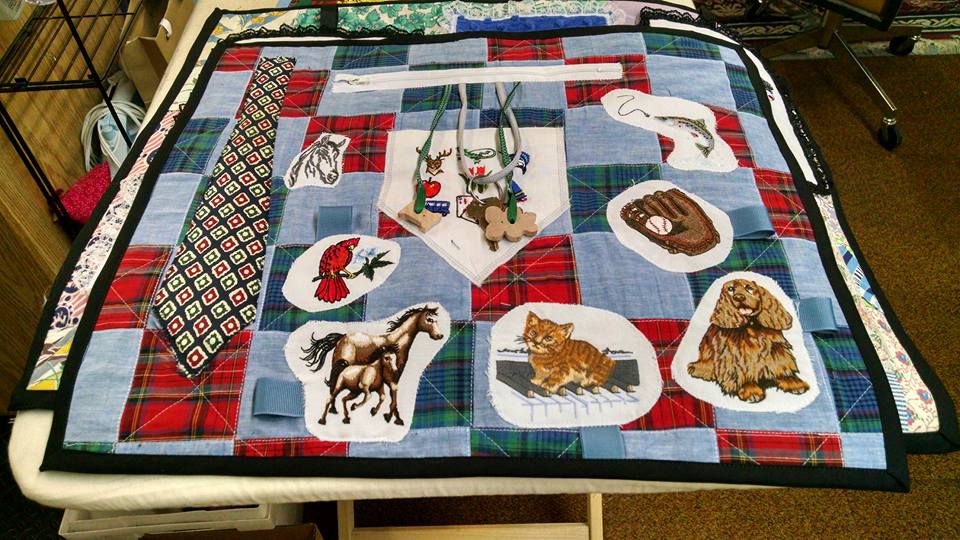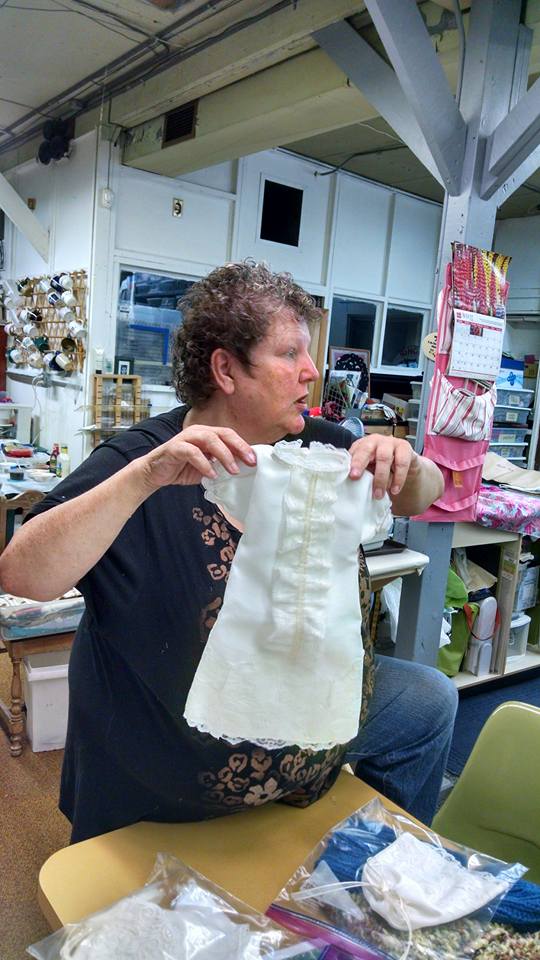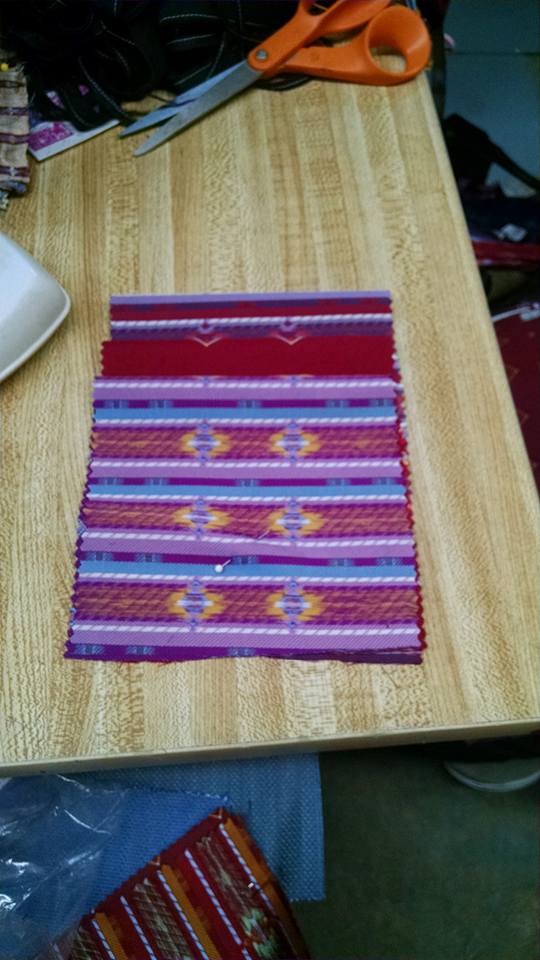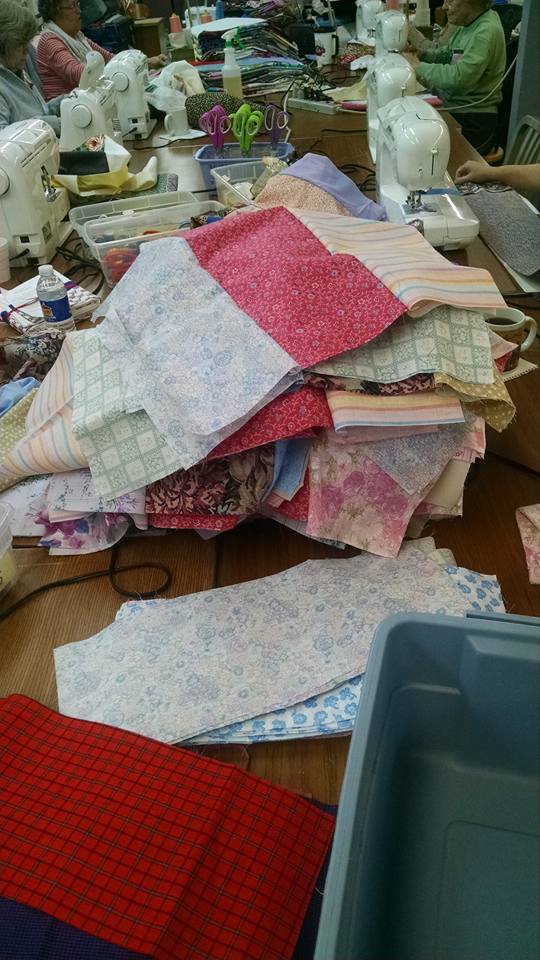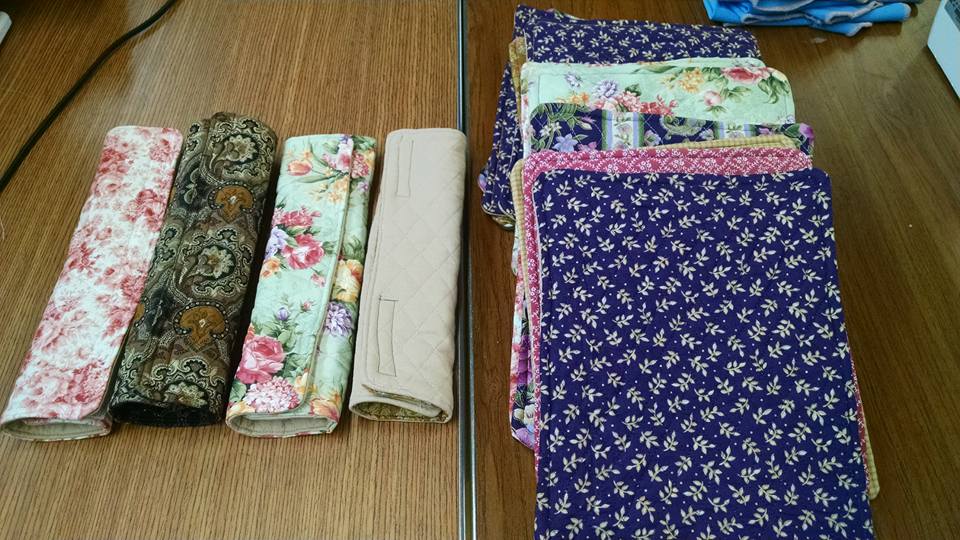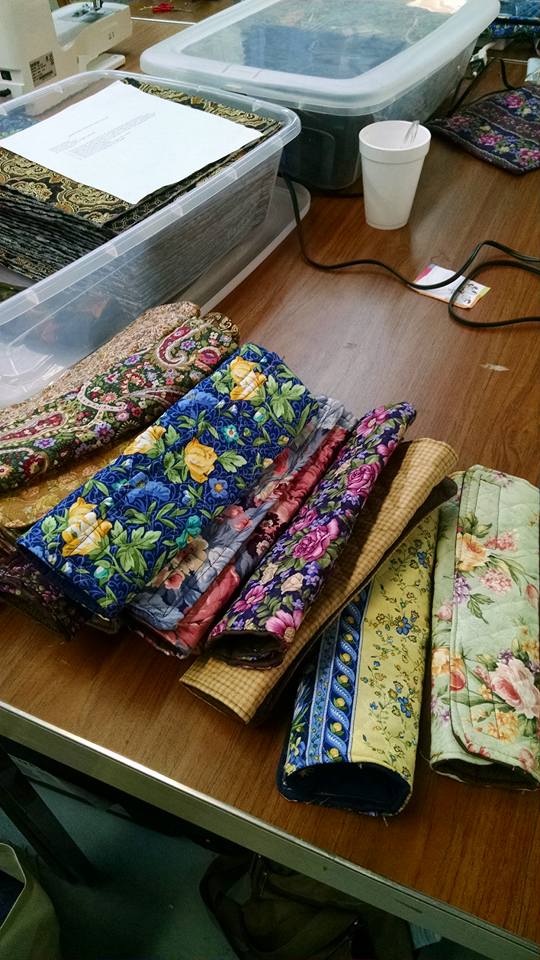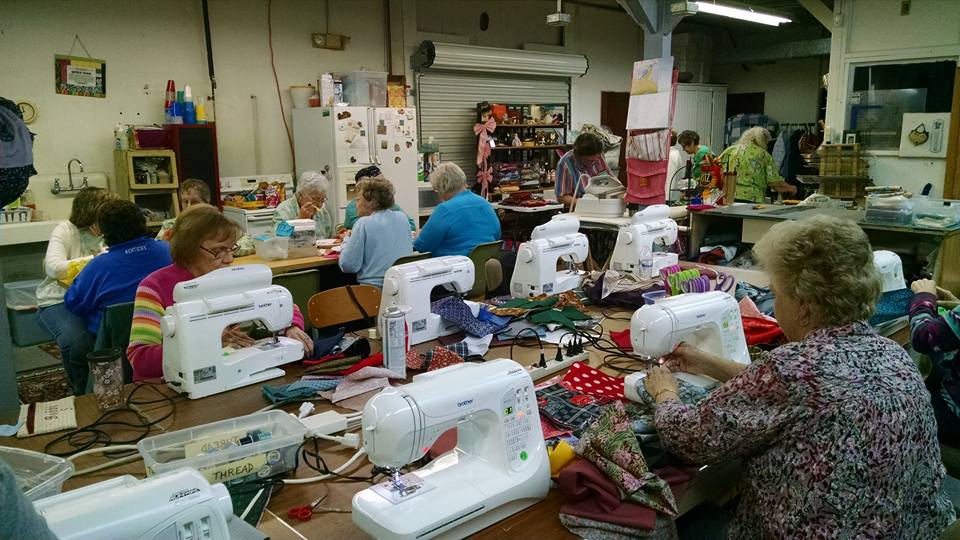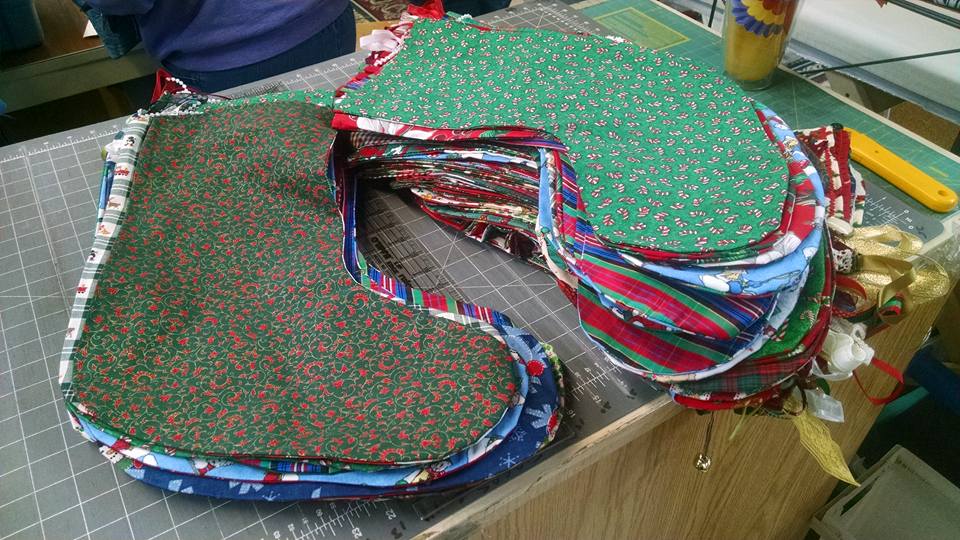Could it be a veteran in Danville? A baby in the hospital nursery in Bloomington? Someone who doesn’t even a place to keep a toothbrush in Normal? Maybe children in South Africa or an elderly person in McLean County? Could it even be one of God’s 4-legged creatures?
These are just a few of our neighbors served by Fibers of Love, a Sewing Ministry started by one woman passionate about sewing with a purpose back in the 1990’s. Trisha Horner joined Calvary in 1995 and even before that had a vision of using the gifts of people who could sew to make a difference in our world.
A woman at the local Community Cancer Center said, “I have been having treatments at the Cancer Center. I see some of what these ladies are doing for patients. Great job, ladies!”
When I broke my leg and found myself dependent upon a walker, I caught Trish Horner at church and asked if I could score a walker bag. She immediately went to her car and pulled out a huge ‘bag of bags’.....walker bags made out of every fabric you could imagine! I proudly sport that bag as I carry my phone and lipstick around the church. “Do you want a phone caddy, too?” Trish asked. I didn’t….the walker bag did the trick…...and I was very grateful.
I was touring Home Sweet Home Mission one day when the director told me that they were just about out of their Fibers of Love Welcome Bags for their residents…..bags to hold the incidentals that Home Sweet Home provides the homeless neighbors when they arrive. I asked the director if she wanted me to contact Trisha to get more and she said, “Oh, no! We’re in contact all the time. She’ll be by soon with more.” I was one proud pastor!
As of the end of November, Fibers had made and distributed over 5,200 items. With the work they completed in December, they easily surpassed 2015’s record of 5,400+ items.
What are some other things they provide? Clothing protectors for the veteran’s hospital in Danville, quilt squares to be made into quilts for children in South Africa, dresses for little girls in Haiti and Buliisa, seat belt protectors, fidget blankets, prayer shawls, and even dog beds for Wishbone Canine Rescue.
On their Facebook page are lots of pictures of projects that the Fibers team has completed as well as updates on their projects. They break in January and February and return in March. You don’t even have to be present at their gatherings each Monday…...Fibers provides kits for church folks to take home and work on their own in their own time. You, too, can make a difference in the lives of people you’ll probably never meet.
Questions or discussion? Click here to comment.
Tomorrow on the Daily Connection: A Light to My Path (Joshua and Rahab)
About the Author
Debbie Reese is the Co-Directing Pastor of Calvary UMC


